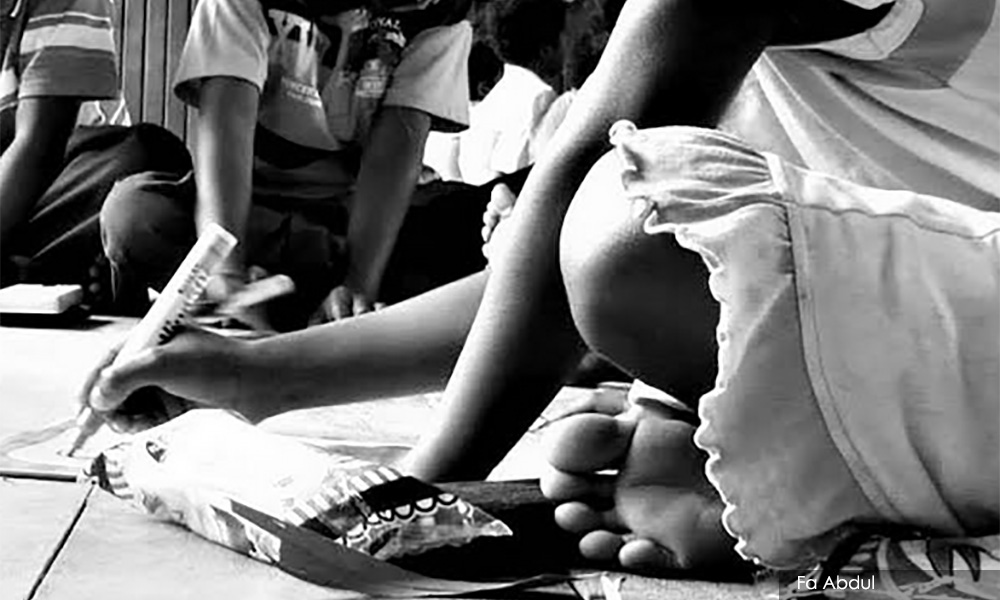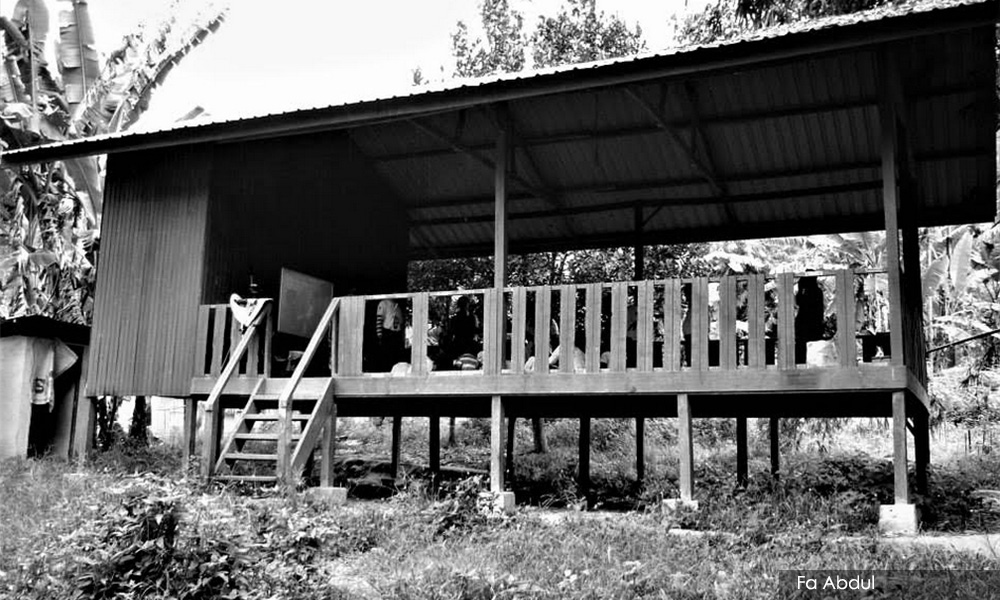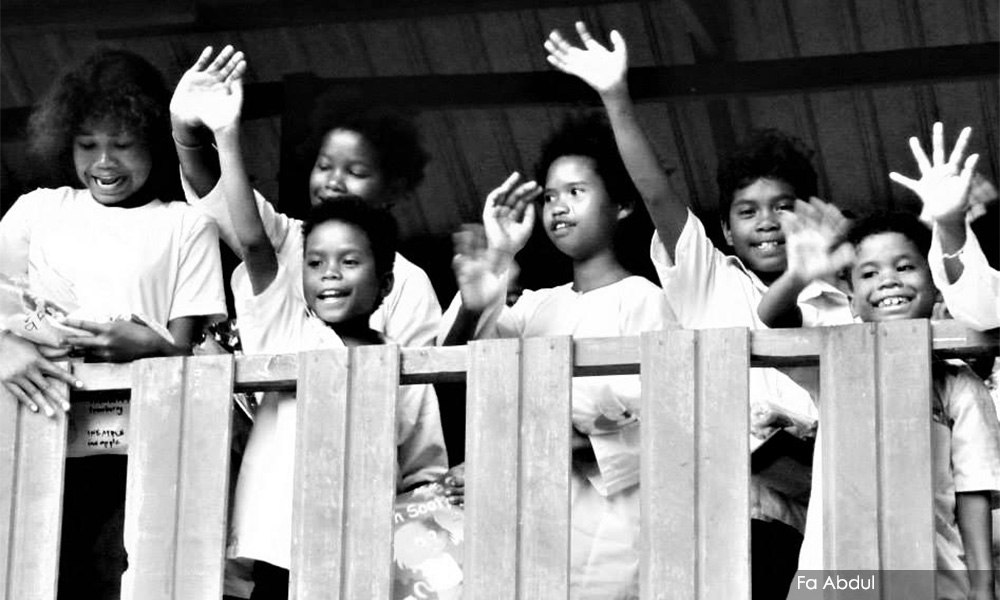
When I read about Education Minister Maszlee Malik’s recent announcement that primary school children across Malaysia will be served free breakfast daily, beginning 2020, to ensure students have balanced meals, I remembered a trip my colleague and I made about six years ago.
It was 2013 when we cruised along the Banding Lake in Perak to locate a small Jahai tribe in the heart of Royal Belum Rainforest, in Banjaran Titiwangsa. After 45 minutes of mesmerizing scenery (including wildlife roaming freely in their natural habitat), we reached Kampung Sungai Kejar, home to more than 200 villagers of the Jahai tribe.
Accompanied by a representative from the Perak Education Department, our aim was to produce a short documentary on the education of the Jahai children living inside the forest.
The Jahai are known to be nomads. However, we found out that Kampung Sungai Kejar had been their home for the past couple of years. Ceasing to move around from one place to another like their ancestors, they had begun settling down.
What caught my eyes in that village hidden inside the forest was their school. The size of the entire school was smaller than any classroom I’ve ever seen. It was made entirely of wood, resembling a hut.

From the representative of the education department, I learned that the school was an initiative by the Education Ministry to reach out to the Jahai. According to the representative, since the elders of the tribe occasionally left their village to sell forest products to the locals and to purchase supplies such as fuel while they are in town, it was important for them to learn to communicate with the locals.
Realising the importance of education for the future of the younger generation of Jahai, as well as to empower the tribe as a whole, the Education Ministry decided to build a small hut as a school for the children.
When the little school was built, teachers from nearby areas had to take daily boat rides to reach the village. However, the Jahai were not interested to send their children to school. Instead, they felt it was better to teach their children skills to hunt and plant their own food.
The Education Department then came up with a brilliant idea. They noticed that the Jahai children only eat what their parents obtain from the forest and river; and when their parents are unable to hunt, the children end up eating tapioca for a few days – hence they decided to offer food if the children came to school.
With nasi lemak and milk for breakfast and a bun for snack time, the number of children attending school increased. Even children as young as 3 years old started coming to school just to get fed. The Jahai folks also started to encourage their children to attend school because it reduced their own burden.
Ultimately, the teachers were able to get the children to sit inside the hut and learn to read, write and count. It wasn’t an easy task as the children were slow learners due to their restricted diet – lack of nutrition clearly had affected them. But thanks to the dedicated teachers and the support of the Perak Education Department, the children continued coming to school every day – to enjoy the food and to learn.

Breakfast for primary students
As much as I am pleased with the initiative by Maszlee and the Education Ministry to introduce the breakfast programme in order to help our children focus better on their studies, I wonder why such an initiative is taken at a ministry level when it could be delegated to schools.
If you take the Jahai children at the Royal Belum Rainforest as an example, it was the Perak Education Department who recognised the problem and initiated a solution. Clearly empowering children within the state is the responsibility of the department, hence they made such wonderful initiatives.
Likewise, wouldn’t school principals be the best people to make such initiatives to assist students who do not get proper nutrition at home?
When I was in school donkey years ago, it was the school PTA (Parent-Teacher Association) who’d organise free daily breakfast, snacks for recess and also lunch, for students who came from struggling families. That is the function of PTA, is it not?
Why then doesn’t the ministry offer financial assistance to every PTA in schools around the country in order to help students in need? The PTA board could then decide the best way to use this fund based on the needs of their respective students - for daily breakfast programme, annual school uniform, after school classes, etc.
Plus, unlike the entire population of the Jahai children who were in need of food, how many primary school students are in need of a free nutritious breakfast?
Some may have breakfast at home. Some may be picky with their breakfast menu. And some may not like breakfast at all. My own children never liked having breakfast before going to school because they feared having to use the school’s dirty toilets.
What happens to all the nutritious breakfast meals prepared for those who do not wish to consume them?
Wouldn’t it make more sense to prepare a good breakfast meal only for students who are deprived of it? Clearly, the ministry wouldn’t have a clue who’d that be – but teachers and principals would. So, once again, shouldn’t the school be making the decision and not the minister?
After all, as the minister of education, Maszlee has a lot of other important work to do - such as reforming the education system (HINT! HINT!). He should not be getting his plate full with initiatives that should essentially be delegated to those under him.
For what it’s worth, I applaud Maszlee for trying.
(Slow clap.)
FA ABDUL is a passionate storyteller, a media trainer, an aspiring playwright, a director, a struggling producer, a photographer, an expert Facebooker, a lazy blogger, a part-time queen and a full-time vainpot. - Mkini



No comments:
Post a Comment
Note: Only a member of this blog may post a comment.